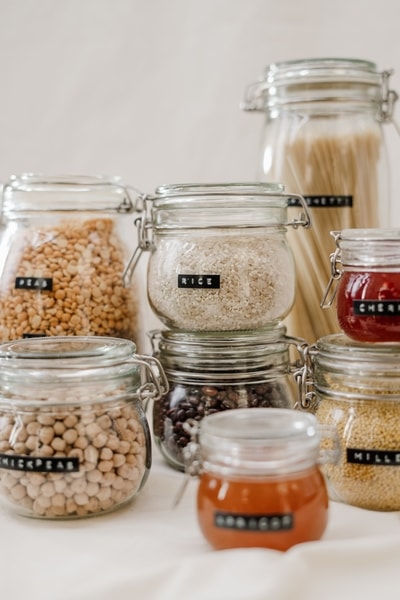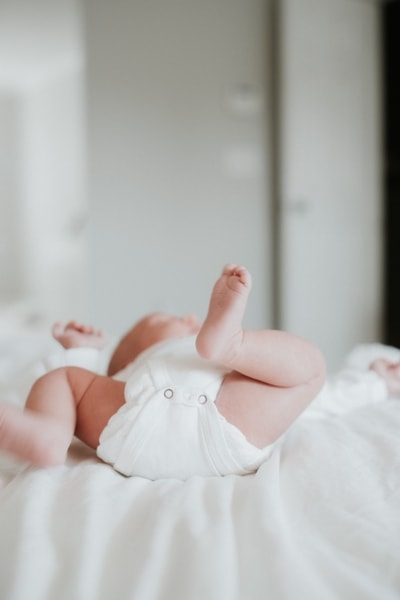Litter and plastic waste is a big problem for Wigan Borough and the UK. Fly-tipping and litter cost 4 million in the borough and 694 million nationwide.
Not only that but when litter is missed and stays on the ground, it starts to break apart and degrade. Microplastics begin to enter the soil and the waterways; it’s becoming worryingly ever-present. And we don’t know the long term effects.
Our general and recyclable waste (that does make it to the bin) is often shipped abroad to be treated as we can’t even deal with it here ourselves. I can’t confirm what Wigan council do (it’d be great to know), but it’s common practice for councils to ship off their recyclable waste to other countries.
And there’s no guarantee that it’s disposed of properly. It needs more investigation, but often it’s burnt or becomes litter where we have sent it. Regulation and responsibility on the part of our councils, shops and the government are lacking. It’s basically expensive to get rid of, so we need to reduce what we buy in the first place.
Litter picking is excellent and really needed here. You see litter everywhere you look locally; it’s a real shame for the neighbourhood and environmentally.
Litter picking isn’t very glamorous, but it is relatively easy, and if you just do an hour, you can get quite a lot done! If you can grab a friend or family member, it goes by even quicker. I aim for an hour every few weeks, but not everyone is that keen!
It’s especially needed here to stop waste going into our waterways, as we have the River Douglas and the Leeds Liverpool canal, rubbish can reach them quite quickly and travel far.
But you can go further by reducing the amount of plastic you use, particularly single-use. The more consumers make these kinds of choices, the more brands and supermarkets respond by removing plastic.
Globally each year, we create 150 million tons of single-use plastic. And it often has a very short lifespan; for example, a plastic bag is used for an average of 12 mins.
It pops up in so many areas of our lives. Once you start looking, you realise it’s often used unnecessarily, pretty much everywhere.
You needn’t try and be a saint and follow everything on this list, but maybe a few swaps may be an easy way to make a difference and show what power consumers have.
In the kitchen
Avoid using wet wipes; instead, try a reusable cloth (not microfiber). You can buy these, or I chopped up an old beach towel, and I use that. If you get a load ( I made 8), then the washing is easy.
Try looking for dishwasher tablets that aren’t plastic wrapped, or at leats in a cardboard box.
In general, bulk buy big containers, like larger bottles, if you can store them—for example, 500ml of washing up liquid, not 200ml.
Avoid paper towels; again, you can use cloths for these; paper towels have a lot of plastic packaging and can be swapped out very easily.
The amount of water and electricity is nothing in comparison to the production of these products.
In food cupboard
Plastic multipacks sometimes save a little money (which is really unfair of the brands to do that), but the packaging on top of the regular packaging is unnecessary. Consider if you usually need 4? Those packages are designed to make you spend more on a whim, not save money.
If you do need more, can you buy larger single packs? For example, 1kg of rice over 500g uses less plastic. I have some airtight glass jars, so if I bulk buy rice/pasta/spices/etc, I can dispense into those, they keep well, and it looks nice.
This is well known, but avoid using plastic store veg bags and plastic multipacks of veg. The ideal is loose vegetables in your own reusable veg bag, or if the supermarket supplies biodegradable ones, that’s helpful.
Milk (including Oat) and orange juice can be bought in glass bottles and delivered and reuses – like the old days! And more and more Zero Waste shops are popping up in the borough where you bring your own containers and use no packaging at all!

In the bathroom
Have a look for Loo roll look for paper packaging if you can.
Again, can you buy 500ml of shower gel or shampoo, rather than 200ml? Quite often it’s a bit cheaper for the same quantitiy in the end. These days there are also a lot of places where you can buy solid bars of shower gel, shampoo, and conditioner which have no packaging at all and can last a long time. They’re also great for travel.
When it comes to sanitary products, there are a few options. Typically tampons and pads are pure plastic. A few options include 100% cotton tampons, or a reusable cup or a cloth liner.
Cups can be washed easily and last most of the day, then sterilised when you’re done with them for the moment. Cloth liners are also easy to just pop in the washing machine.
Babies
Babies create waste, particularly when it comes to nappies. There are quite a few options now and a few that will save your bins filling up too.
With each of these, there is a reusable/washable version and a more green throwaway option.
Cloth wipes or biodegradable wipes
Cloth nappies or biodegradable nappies
Biodegradable nappy bags
However, it’s shown to negate the effect if you put biodegradable wipes in non-biodegradable nappies or a non-biodegradable nappy bag.
So if you want to buy one, then it’s better to try all three. Or throw away the biodegradable item separately. Please don’t put any of these items in the recycling bins, or your composter, they go in the black bin only.
Cloth nappies or cloth wipes sound like a lot of faff, but I saved over £600 with my first baby by using cloth nappies most of the time. If you have a second child, the cost savings are even more significant.
It helps to get a bucket with a secure lid for dirties; then, it’s easy to fling them in the washing machine on a hot wash and peg on the line.

On the Go
Snack rubbish is very prevalent out and about, and it’s very common for waste on the ground when I’m litter picking.
Here are a few ideas.
Rather than cut up fruit in a plastic packet, will a loose piece do? Like a banana or apple. If you want to buy a snack bar, can you buy a few with less packaging (if it exists) and keep them for another day?
A tiny bit of prep helps; if you can bring something from home, it’s usually a lot cheaper too. An obvious one is bring your snack or drink with you.
Fruit, sausage rolls, a little bag of nuts, half an avocado, sandwiches, boiled egg, chopped carrot, homemade muffins (sweet or savoury), flapjack, flask of tea.
There are tons of ideas, not everyone will have time, but they will have less plastic, be cheaper, and be healthier.
Rather than buy water, a reusable bottle is cheap in the long term, and there are refill spots all over the UK where you can fill up if you run out.
Buying water is just paying for the plastic.
Hopefully, these tips will give you some quick ideas next time you’re doing the shop. I never aim for perfection, but even a small few swaps could make a difference. Brands and supermarkets do react to consumer trends, so this is the power we have to stop useless plastic from being created in the first place.

[…] releasing potentially toxic fumes into the air, contributing to air pollution. If you would like to use less plastic then, we have a blog post to help […]